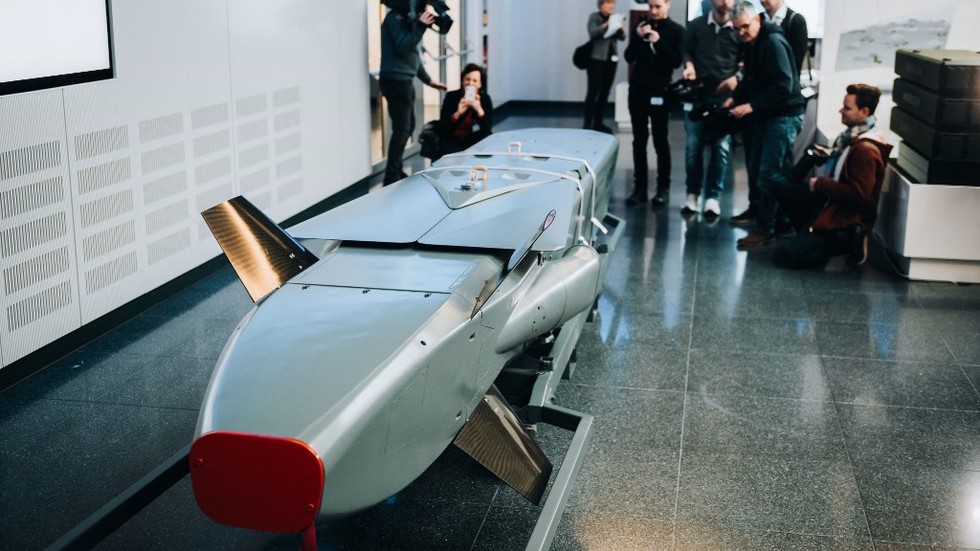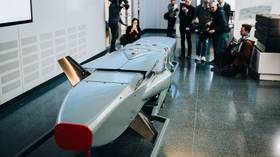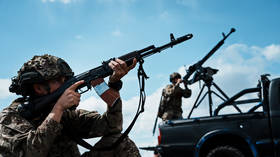
If Olaf Scholz wanted to send Taurus missiles to Kiev, he could find a “technological solution,” CEO Michael Schoellhorn has said

A Taurus KEPD 350 missile is displayed at the headquarters of MBDA Deutschland in Schrobenhausen, Germany, March 5, 2024 © AFP / Sebastian Pieknick
German Chancellor Olaf Scholz could supply Taurus cruise missiles to Ukraine without sending German military specialists to operate them, the head of Airbus’ defense division has told Der Spiegel. Scholz has insisted that the need for German personnel prevents him from sending the missiles to Kiev.
Ukrainian President Vladimir Zelensky and his officials have been asking Berlin for Taurus missiles for almost a year, but Scholz has thus far refused to consider the request. Speaking to the news agency dpa in February, the chancellor claimed that German military technicians would have to be deployed to Ukraine to operate the air-launched missiles, making them active participants in the conflict with Russia.
Airbus Defense and Space CEO Michael Schoellhorn believes that Scholz has no desire to give the missiles to Ukraine, and is using the need for German involvement as an excuse.
“The chancellor has decided on the issue. His argument is political,” Schollhorn told Der Spiegel in an interview published on Saturday.

Read more
“If there was the will to deliver, technological solutions would be found to use the Taurus in Ukraine without German participation,” he continued. “But I can understand the political arguments.”
Developed by Germany’s MBDA Deutschland and Sweden’s Saab Bofors Dynamics, the Taurus KEPD-350 is an air-launched cruise missile capable of carrying a 480kg warhead over a maximum distance of 500km. Armed with these missiles, Ukraine could launch strikes deeper into Russian territory than with British Storm Shadow or French SCALP-EG missiles, which have a maximum range of around 300km.
MBDA Deutschland’s parent company is owned by Airbus, BAE Systems, and Leonardo.
Kiev has specifically asked for Taurus missiles to strike the Crimean Bridge, one of several key transport links between the peninsula and the Russian mainland. In a conversation leaked in March, senior German military chiefs discussed how the missiles could be given to Ukraine for this purpose while concealing German involvement.
However, if Ukraine were to take delivery of the missiles, its air force would struggle to launch them. At present, only five aircraft – the Panavia PA-200 Tornado, Eurofighter Typhoon EF-2000, and McDonnell Douglas EF-18A+ Hornet – are capable of carrying Taurus missiles. The Ukrainian military would either have to develop adapters to allow its Soviet-era MiG-29 and Su-24 aircraft to fire them, or lobby the West to provide aircraft capable of doing so.




